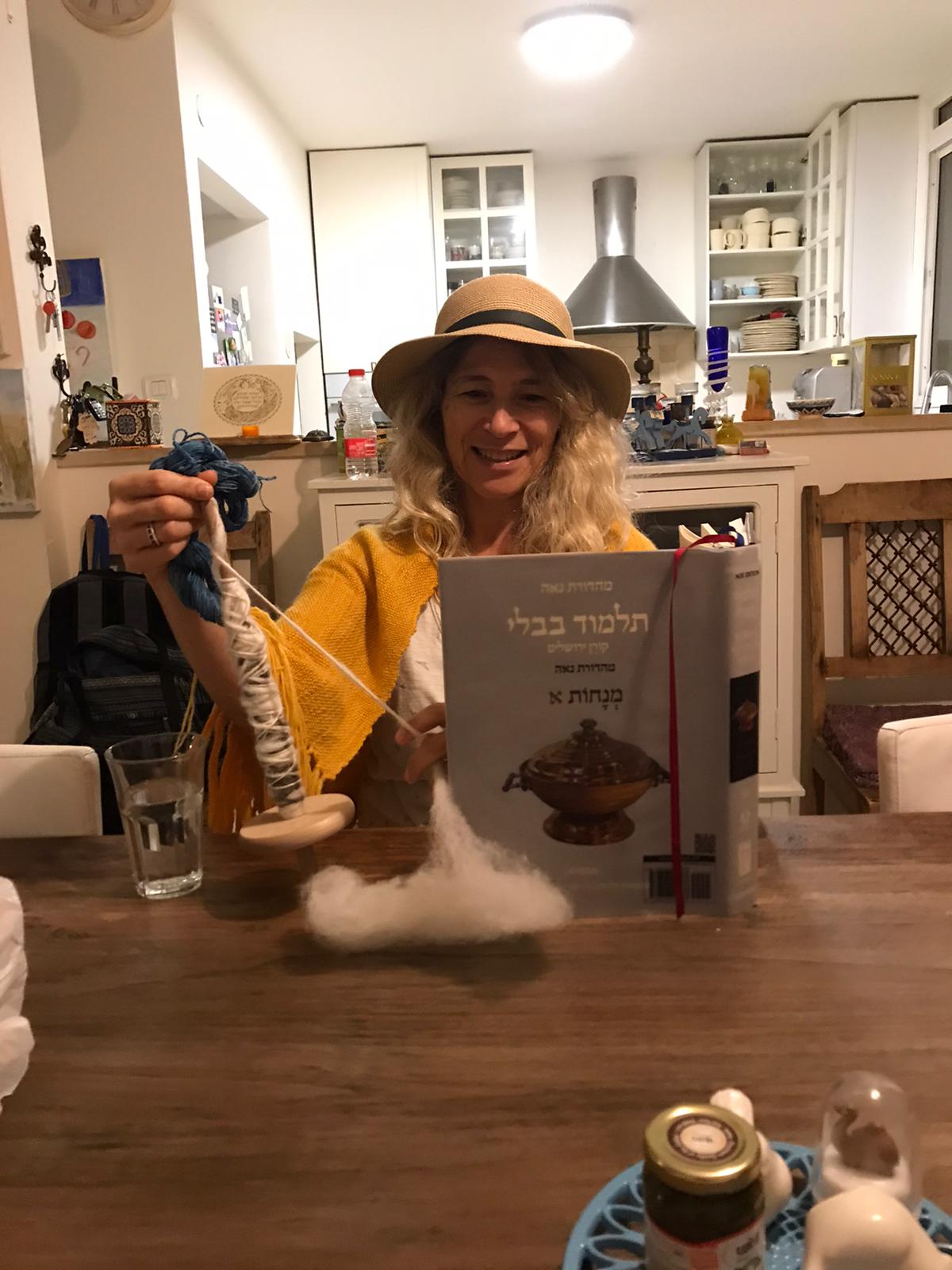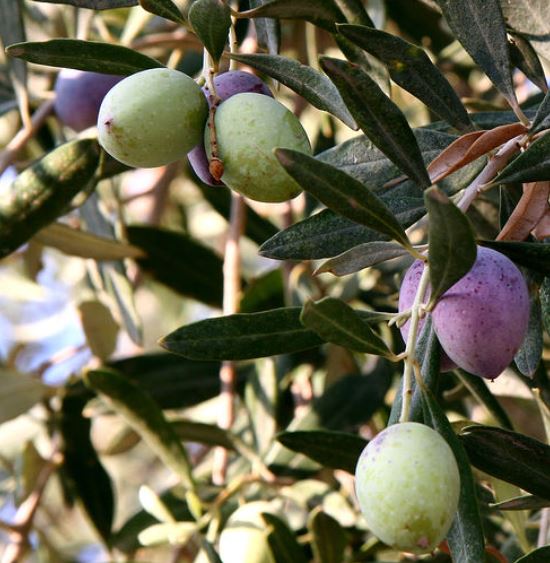When I think about the last 7.5 years of learning Daf Yomi, I see how it has become an inseparable part of my life, both the physical and the spiritual. Although I had no background in Talmud study, I have been able to learn what I consider the most important book in the history of the world (after the Tanakh). It simply contains everything. Every topic one could ever imagine or encounter in life is addressed in the Talmud, and the knowledge that I have acquired is something that can never be taken away from me. That’s what the Hadrans are all about. Our thoughts are upon it, and its thoughts are upon us, always.
I am so thankful for the Koren Steinsaltz English version of the Talmud and Rabbanit Michelle Farber’s English classes, and all of the people who make Hadran possible, and the extra shiurim that gave me access to material I could not have learned on my own. In gratitude, I decided to celebrate my siyum by providing a scholarship for a Talmud teacher to deepen her knowledge with Hadran, so that she can give it back to us. Sometimes, while traveling or visiting my kids at mechina, I was the only woman in the Daf Yomi shiur they were offering on shabbat, but this is changing fast thanks to a new generation of women Talmud teachers and learners.
Looking back—I have a kind of photographic memory, so I can vividly remember days learning the laws of sacrifices while walking up my very steep road in Vermont, contemplating the complicated laws of Yevamot while sitting outside in a café facing the Matterhorn as my family skied, or being in Rome exactly on the day we were learning about the Coliseum. I remember rainy days when I had to drive at 7:15, listening to parts of Kiddushin in the car, and having to turn down the sound because the subject wasn’t exactly for little ears. I remember being on the Daf before, during and after many ballistic missile sirens, and jumping out of my seat with the sonic booms. I remember closing the camera when my soldier walked in unexpectedly, or when my new puppy started dragging all of my yarn out of the boxes and eating my socks. I recall that my son and I started the new Daf Yomi cycle together and that somewhere about 2 years ago, he had to drop off and take care of the bad guys. I recall being able to actually help my younger kids with their Gemara studies, having already learned some of the sugiyot they had in school and the excitement I felt when we got to famous debates and disputes that I had heard about. I remember some days being amazed and frightened about the rabbis’ descriptions of the “birth pangs of Moshiach” and feeling like we were right in the middle of it.
Learning the Daf actually encouraged me to study archaeology, and I even wrote a master’s thesis on the famous tekhelet and argaman dyes. In archaeology, there are two kinds of exploration. First there is the survey. You walk across a piece of land, picking up the pottery shards to get an idea of what happened there. Once you feel you understand the basic time and space issues, you can pick a place to conduct an excavation. I feel this first cycle of Daf Yomi was my survey. I got a taste of everything Jewish tradition has to offer and it enriched my weekly synagogue attendance, and all types of shiurim where people brought up Talmudic sugiyot. There was nothing that I hadn’t heard of. Now, I intend to dig deeper, using the extra materials and improving my own abilities to use the Hebrew Daf, and to delve more into the commentaries. I am looking forward to reading all of the little post-it notes and flags I stuck in my books during the first cycle, to see if I am still thinking the same way, or if my views have changed and developed.
I tried to listen to the whole of every daf, even when I had to jump off early or join late and make it up, but in case I missed a sentence or two, I will rely on the Talmudic principle of levud. (If you don’t know what that is, come learn Masechet Eruvin with us!)
The Daf is always enriching my life. It helps me with kashrut and allows me to appreciate the details of wedding ceremonies. The prayers of the holidays make sense, and I understand the seriousness of making and nullifying vows. I am careful with kilayim—making sure not to mix my wool and linen when weaving, and to space out the vegetables when planting my garden. Because the Talmud deals with every aspect of our world and even the world to come, it reminds me that there is always an opportunity to do better, to be careful and “go around the vineyard,” to infuse more purity into the world, to be more precise with words and deeds, to elevate the mundane, to think about how someone else sees a situation and what the experience of others is like–the orphan, the widow, the blind or deaf person, the slave, the woman whose father sold her as a bride. No two people learn the same daf, even though we are all on the same daf. Everyone brings his or her experience to the words and ideas we learn every day. Several times a week, I say to myself or out loud, “The Talmud talks about that.”
The most important lesson I take from these years is that the Talmud is relevant simultaneously to life 2000 years ago, and life today, because the Torah and the divinely inspired work of the sages are not limited in space and time. Sometimes our modern ear finds it hard to accept some things we learn, but we have to search for that kernel of truth that must exist. To explain Daf Yomi to someone who hasn’t learned it yet is very challenging. For us veterans, the fact that the Gemara discusses what you do when a mouse falls into your beer, or when a snake puts its venom in your wine at night is just normal, because all kinds of crazy things happen in life, and you’ve got to be prepared. Living through the last five years alone, we’ve all seen things on the scale of flying camels. I am thankful to Hashem that I had the privilege of learning Torah lishma, Torah for its own sake.
And now, I am going to sum up the last 7.5 years, and the whole of the Talmud in one word: Achrayut–Responsibility. The Talmud teaches us what our responsibilities are toward G-d, toward our immediate and extended families, our communities and the entire world. The whole point of Talmud study is to discuss and debate these responsibilities and hopefully come to a conclusion about the halakha–but not always–some dilemmas will remain unresolved until Eliyahu Hanavi comes. The Talmud understands human behavior, and sometimes it expects just the minimum from us. And other times, we see that acting beyond the letter of the law is laudable or even preferable. We shouldn’t take vows because we have a lot of restrictions in our lives already, but sometimes it seems like a good idea, as in the story of Queen Helene, who vowed to be a Nazirite if her son returned from the war safe and sound. I think everyone who has a soldier in this war can relate. May all of the soldiers and all of the hostages come back safely and speedily.
I would like to thank my husband and children for supporting my commitment to learning Daf Yomi, and Rabbi David Zadok and Rabbi Mordechai Avtzon who started me on my Jewish learning journey back in Hong Kong 30 plus years ago. And thanks to my dad who taught me how to argue cases and my mom who sent me to Aish Hatorah for a shabbat a long time ago. May our parents all live long healthy lives, until 120.
I want to dedicate my siyum to all of those soldiers and civilians who started this Daf Yomi cycle and didn’t get to finish because they were killed in the war, and to some very close friends, fellow learners, whom we lost along the way to illnesses. We just learned a few days ago (Horayot Daf 6)— אין מיתה בציבור—there is no death with regard to a congregation.
Those individuals finished their job in this world, but we, the congregation, have to continue in their merit and their memory. I plan to continue to learn the daf every day for the rest of my life (G-d willing). There is so much more to discover on those pages. I hope some of you, my friends, will consider taking on the challenge. It is so worth every moment.
Hadran Alach Masechet Horayot, Seder Nezikin and Talmud Bavli!







